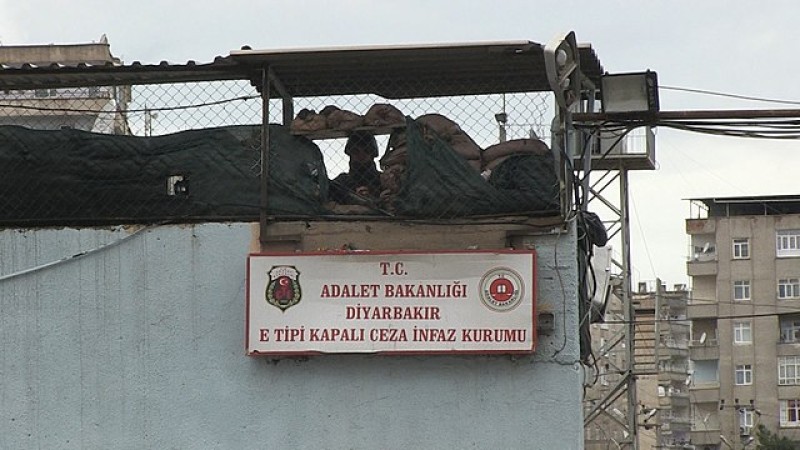The move was condemned by local and international journalist associations as a crackdown on free press as well as on Kurds.
The state-run Anadolu Agency reported that more than 20 media workers were detained in connection with TV broadcast from Belgium and the U.K. which authorities labeled as terrorist organization propaganda.
The International Federation of Journalists (IFJ) and its Turkish affiliates condemned the arrests and the use of terrorism charges to criminalise journalism, and urged for their immediate release.
“Turkish authorities continue to crack down on journalists, accusing them of practising terrorism. The IFJ strongly opposes these arrests and stands in solidarity with all Kurdish media workers currently in prison for doing their job,” said Anthony Bellanger, IFJ General Secretary.
“Journalism is not terrorism,” he added.
The German Journalists Association issued a unanimous statement, with chairman Frank Überall saying "that fits with Erdogan's anti-media course, with which he has been suppressing independent voices for years."
Journalists in Turkey often face prosecution for their work and those of Kurdish origin in particular.
”These raids were actually an unusual form of routine practices with which we [Kurdish journalists] are familiar with,” Sedat Yılmaz, a senior editor at the Mesapotamia News Agency, whose journalists are among those detained, told OCCRP in a phone interview.
“Usually they target individuals - but this one was a mass arrest instead,” he added.
The journalists were held in custody at the Diyarbakır police headquarters for a week, where they were reportedly subject to ill-treatment and poor conditions, according to Yılmaz.
Detainees include journalists from the all female Jin News, pro-Kurdish outlet Mesopotamia News Agency, the Dicle Firat Journalists’ Association, the Kurdish language weekly newspaper Xwebûn, as well as the production company Pel Yapım.
The journalists’ lawyers were reportedly denied access to case documents and were not told why their clients were arrested. They found out about the charges from media reports.
Apart from raiding the reporter’s homes, police searched also the headquarters of Jin News, and production companies Pel Yapım, Piya Yapım and Ari Yapım in Diyarbakir. Yılmaz said that the police confiscated dozens of hard disks, computers, and technical equipment, and were blocking the headquarters to halt the work of the remaining journalists.
Turkey is known for its repression of free speech and journalists who criticize the government as well as Kurdish political activists.
In the Reporters Without Borders 2022 World Press Freedom Index, Turkey ranked 149th among 180 countries. On the top of that, Ankara sees the Kurdish Workers Party (PKK) as a terrorist organization and all detainees are Kurds.
The Committee to Protect Journalists issued a statement of condemnation on the day of the raids. The organization claims that Turkey has last year kept 18 journalists in prison.
Over 800 journalists and 60 organizations have signed a letter published on Monday in Turkish, Kurdish, Armenian and English, voicing support for the detained journalists.
“Although these policies of oppression and intimidation are known very well by the free press tradition, which works devotedly for the right of people to receive information, we will not get used to these operations and policies of intimidation,” the statement declared.
Another joint statement issued by 40 journalists, including prominent Turkish journalist Can Dündar who is currently in political exile in Germany, drew attention to the targeting of Kurdish journalists. The arrests were “aimed to prevent the flow of information and news about human rights and election violations, especially from the Kurdish region.”






